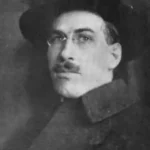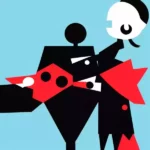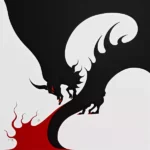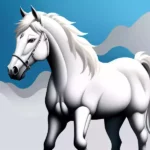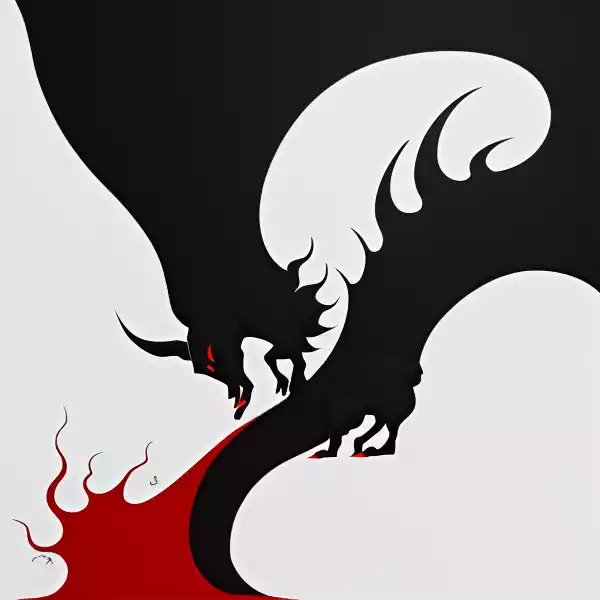 | |
Clay and the Cloven Hoof | |
| Author | Wilbur Daniel Steele |
|---|---|
| Published |
1927
|
| Language | English |
| Nationality | American |
| Genre | Drama |
1927 Short Story
Clay and the Cloven Hoof
Clay and the Cloven Hoof is an English Drama short story by American writer Wilbur Daniel Steele. It was first published in 1927.
Clay and the Cloven Hoof
by Wilbur Daniel Steele
She came into his life on an afternoon of golden sunlight. Afterward, looking back across the abyss, the peace of that day returned to the artist in Mr. Ives as a dramatic oversight of the elements, a thing incredible.
Mr. Ives was nothing if he was not an artist. He tried to hide it, for he felt that in Paragon Heights that sort of thing wouldn’t do. For the man arrived and successful, yes; but for the struggling neophyte, no. Perhaps he was oversensitive, but sometimes he thought he should die if any one were to find out about that secret room where he kept his clay and his stands, his modeling-tools and the half-finished portraits from memory of his friends. To see him on the street or at a party one would never have taken him for other than the young suburbanite, reading law on the moderate means bequeathed to him (along with the house) by his great-aunt Geraldine White. That was all sham. In the heart of him he was the artist, shrinking from the hard light of a suburban civilization.
And to the artist it seemed in retrospect that the hour of Victoria’s coming should have bornes some portent, a dead cloud or a black rain or else the weird, sulphurous light that heralds the hurricane.
But it bore no portent. The westering sun shone blandly on the rich and on the comfortably situated alike. Serenely it shone on the Picture Palace whose recent closing had laid the last straw on the back of the servant problem in Paragon Heights.
And so it shone, with a disarming tranquillity, on Victoria. So Mr. Ives saw her for the first time, silhouetted in the open doorway.
“Yes,” he breathed, his mind divided between relief at sight of domestic help after so many dreary weeks and the embarrassing consciousness that there was still clay on his hands and that the door to that vaguely illicit studio behind him had not properly closed. “Yes—yes—I am Mr. Ives. And you—that is, Mrs. Goldfeather at the agency she sent you out?”
“Right, sir,” the black woman answered him. “Quite right, sir.”
“Good. Come in will you, Sit down.”
“Hi thank you, sir.”
The voice was rich, reserved, bearing in its shadows a far reed-note of the minor that troubles the African’s song. It troubled Mr. Ives, too, although he didn’t know it. He watched her moving on soundless feet to do his bidding and sinking into a chair with an ease of carriage unhurried and somehow leonine.
“May I ask your name?”
“Miss Victoria Thwaite, sir.”
“Well, Victoria” —his lips fell into the old, worn, optimistic ritual—“well, I hope you’ll like the place. The work isn’t heavy. I’m alone, you know; live simply, washing done out. Mrs. Goldfeather saw to your recommendations, I presume?”
“Hi’ve not been in service before, sir.”
“No? Not—will— Hmmm! A-a-all right!” If there were a little cloud on the horizon, this surely were not the day to look at it. “Hmmm! Well! All right .I’m going out for a short walk. If you’ll just make yourself comfortable Victoria. Your room opens off the kitchen. Pleasant room, I think. Not been in service before? Hmmm!”
He found his hat among the magazines on the center-table and was about to go out, when something which had been bothering him in the subconscious came of a sudden to the surface.
“Do you know what?” he mused. “This is the queerest darky I ever saw. She doesn’t talk any more like a darky than a—a—” Than a what he couldn’t precisely say.
“By the way, Victoria, you don’t seem to talk like a—a—a colored—well, like a Southern person.”
“Really, sir?”
“No.”
“As you say, sir. Quite as you say, sir.”
“Mr. Ives had a sense that his voice was beginning to snap.
“Why do you say that?” he demanded.
“Hi beg pardon, sir. What, sir?”
“What you just— Well—why didn’t you answer my question?”
“Question, sir?”
Sitting erect in Great-aunt Geraldine’s knitting-chair, her ebony fingers touching lightly tip to tip inher lap, and the small, faintly lustrous orbs of her eyes transfixed in vacancy, she awaited what further he had to say with a detachment darksome and almost occult. It made the memory of his own voice sound like the memory of a mosquito complaining in the night.
It was all too abysmally absurd. Of a sudden, Mr. Ives felt himself on the point of screaming. He even felt his lips opening .To his relief, he found that he was telling her he wouldn’t be in for dinner.
“This first evening,” he heard himself stammering as he made what seemed an escape across the expanse of the floor, “—give you a chance to—and, anyway—nothing much in the house—“
He was out-of-doors at last; clean, healthy sunlight around him.
“Good Heavens!” he breather. He made off, mopping his brow, still with the sense of flight. “Good Heavens!” he continued to repeat.
He had come fairly within the boundaries of Paragon Heights’ business district, when revulsion claimed him. The psychologist will say that his subconscious had been at grips with the problem for some minutes past, but superficially it was the green-and-silver sign over the Suprime Lunch Room that brought him up.
“Cheese!” he almost shouted to himself. “Of course!”
Cheese had always been bad for him, especially cooked cheese. The cheese he had had that noon at the Supreme Lunch on his “Italian-style macaroni” had been actually melted. He might have known. He had had nightmares following precisely the same indiscretion. If it had come now to the Horrors in broad daylight it was time he took himself in hand.
Nevertheless, it was a comfort to know from what innocent cause that moment of sinister hallucination had come. He began to be amused, at himself, at his absurd fright, at poor black Victoria, probably at this moment arranging her pathetic treasures on the bureau in the maid’s room. As to the accent which had bothered him—well, every one knew that that kind was forever aping its betters, and she had probably served in some exiled English family; had perhaps been discharged for some small inadequacy, even perhaps (and that would explain her lack of credentials) for some minor peculation. Very, very few of them could be altogether trusted.
Mr. Ives sighed. But he would not see the molehill for the mountain. One thing was sure, he had at last a servant in the house. And, after a fashion as old as the race, he wanted to tell some one. He hadn’t far to look. This was the hour of the Heights’ daily resurrection, the hour of the “Five-fifty-eight” and the “Six-ten” and Dewey Street was full. Taking only a moment to buttonhole John, the ice-boy, and ask as a special favor that he take a piece of ice to the house immediately (because there was a new cook come), he fell in step with the first acquaintance passing.
The banker, Mr. Ironwall, was something more, indeed, than an acquaintance. Mr. Ives hated him in one way more than he hated any one else in the world. And yet he had to call him “uncle,” since he had known him from boyhood up.
“Well, Uncle George,” he observed, “I don’t mind telling you I feel pretty good. Something pretty fine has happened.”
“Don’t tell me”—the banker lifted his grizzled eyebrows in consternation—“don’t tell me you’ve gone to work, Rob!”
That was the trouble with trying to talk with Mr. Ironwall.
“No,” Mr. Ives murmured, biting a bitter lip. “I—I was just going to tell you—I’ve got a housekeeper.”
“Again?”
There it was—that air of taking it for granted that nothing in Mr. Ives’s life could possibly be settled, accomplished, permanent. He would say not another word. It was the banker who had to break the silence by and by, in a tone of genial asperity.
“See here, Rob. What are you staring at me for?”
“Staring? I— Why, I didn’t know—I didn’t mean—“
Mr. Ives’s cheeks grew warm. He was perfectly well aware that he had been staring at the other for minutes past, taking visual stock of the bone-structure of the banker’s head, modeling with imaginary clay the eye-sockets and the fine, leonine slope of the brow.
“Well, you were, Rob! Like a cat with a mouse. And what’s more, you’re getting into a habit of that lately. I don’t suppose you realize it, but others do. Just last night I heard Martin saying—“
Mr. Ives found himself at a loss for words. His color deepened. If they talked now, how would they talk if they only knew what the side room in his house contained, what a gallery of all their likenesses in clay and plaster it harbored, likenesses created in secret, through memory, by dint of this same studious staring, and by that alone.
“Even Doctor Failing has noticed it,” the banker pursued.
Mr. Ives felt he must say something. This very day he had spent at work on a Failing, a small, half-length Failing in a toga.
“Fiddleticks!” he muttered. “Perfect fiddlesticks!”
For a moment he was afraid he had hurt the other’s feelings. They had come by now into the new Esplanade, done broadly in tar and gravel and set with the frail feathers of nursery poplars. It was rather bald as yet, but time would cure that; the best people were buying on the Esplanade; the Ironwalls were at the top of the hill. The sun had gone down, purpling the world with its own shadow and bathing the vacant slope of building-lots in a mystery not its own. When the banker spoke there was a new seriousness in his tone.
“Robert, I never had better friends than your father and mother were. I feel almost as responsible for you as I do for Eleanor.”
Mr. Ives was embarrassed.
“Anyway, Robert, I’ve got to wondering lately—if you were my son, now, I’d think it was time you began to get down to it. You know you can’t read law forever. One of these days you’ll be growing up.
“Growing up!” That was too much. That was precisely what Mr. Ives had against Mr. Ironwall. “Uncle George, you never seem to realize that I’m a man of thirty! Going on thirty-one!”
“Thirty? Heavens! Why, you ought to have a family .Rob, I can never thank God enough that you and Eleanor were not enough in the same generation at school to be—well—taken that way. You know I like you, Rob, and I see good things in you, but, on my word, if you and Eleanor had ever been hit by that confounded nuisance, love from childhood, and that sort of thing—I give you my word I’d — Oh! Great Heavens!
It was at such times as these that Mr. Ives felt an almost irresistible desire to grasp Mr. Ironwall by the shoulders and cry in his face: “You fool! You poor, blind, infatuated fool! We did! We have! We are!” It seemed he could throw away all the immunity of secrecy and be glad, if only for a moment the banker could hear the things his daughter and he talked of in the solitude of the porch, or see the pretty, wistful air of furtive proprietorship she had when she came to a rare tea at Mr. Ives’s house in Everglade Avenue, and that lovely pout at the “locked room,” and all.
It seemed to him he must burst.
“No, no thanks, not to-night,” he muttered between locked teeth as, halting before the gates of Ironhurst, the banker spoke of his staying to dinner, now he was there. But almost immediately his determination weakened at the sight of a dim white frock between the farther hedges, and against his will he hoped the banker might persist. “Well—” he shifted, “to tell the truth, Uncle George, there isn’t much of anything in the house, after all, but ice. And perhaps it would be better to give the new girl a chance to—to—“
He found himself drifting inward on the banker’s arm. After a moment, as they moved alongthe drive, he came to a halt.
“Who,” he demanded, “is that?”
“Who? Talking with Eleanor, you mean?” The banker laughed indulgently and dragged him on. “That’s nobody but young Kyle, from the bank. We’ve just given him a little boost, to assistant cashier, you know, and I asked him out int honor . Good evening, Kyle. Come in the car? Shake hands with Rob Ives, Mr. Kyle.”
From the first, Mr. Ives had a queer feeling against young Kyle. He was young, alert, purposeful; he was immaculate, well tailored, well set up. And yet about his whole visible presence there was something—something in his easy magnetism, in his poise, his unquestioned adequacy, that put Mr. Ives vaguely out of countenance.
He wondered it it weren’t himself—if it weren’t again cheese. Half lost, he was hardly aware of a beloved and bantering voice at his side:
“And this is Miss Eleanor Ironwall. Will Mr. Ives be pleased to shake hands with Miss Ironwall?”
He did so, gravely, still more than a little in the mist.
“Sakes!” she cried. “What have you been doing Rob? Grubbing? Do please, like a good boy, run in and wash your hands for dinner!”
She laughed adorably. Young Kyle laughed with her. Mr. Ives winced. As he obeyed, holding his head high, he wished bitterly that something might happen to young Kyle.
Immured in the glittering company of the washbowl, however, another and more appalling thought was to drive young Kyle for the moment out of Mr. Ives’s mind. From the clay on his hands, memory carried him back to the afternoon, and he recollected the door. The same confusion which had led him to forget his hands had made him neglect to lock or even close the studio door.
He tried to look at it philosophically. If Victoria knew—she knew. The horse was stolen; the milk irrevocably spilled. At last, even against his will, some one knew. As he dried his hands, for one moment there ran over him a sense of somehow aweful satisfaction. After all, man lives not by bread alone, but by some meed of admiration and of awe .In the hall he met Doctor Failing. He had know known the doctor was to be there.
“What’s up, Ives?” The doctor smoothed his small, well-kept mustache. “Bless my soul! you look like the blushing bridegroom.”
“Oh,” said Mr. Ives, “nothing. That is, I—I’ve got a cook.”
Nothing was farther from his mind than young Kyle.
By the time dinner was over, however, young Kyle was in his mind again with a vengeance. Not even the glances of reassurance he had had from Eleanor or the covert gestures of boredom had succeeded in resigning himself to her monopolization by young Kyle. That it was monopolization could not be blinked. That it had been in a sense allowed for, even facilitated, began to dawn on him. Nor was his depression lightened when, coming out, all of them, under the stars, young Kyle excused himself and drifted off to where his car stood gazing out, whit-eyed, along the drive. And Eleanor? Eleanor had gone with him, with no more than a fugitive whisper left in Mr. Ives’s ear: “Father wants me to. Just a spin—“
He watched her getting into the long, low, grass-green thin, and heard her flickering laughter drowned by the soft crescendo of the engine .And then he became aware of his own voice.
“Yes, thanks; had a fine time, but really I’ve got to be running. Lots of work to do. Good night, Doctor.”
When he had come as far as the road outside the gates he stopped. Standing there in the little glow from the gatelamp, bitterness cleared his eyes, and he seemed to see for the first time all the petty shams of society, the stultifying compromises of the law, the modern ascendancy of acumen over thought, of the acquisitive over the esthetic, of finance over art. Paragon Heights! It came to him with a kind of shudder that it was time for him to break with Paragon Heights and go away and be himself. And Eleanor? Well, if he were not considered good enough for Eleanor—
He held out his heavy hands, palms upward to the sky. He turned red and took them down again at the sound of a voice in the gateway inquiring if he were looking for rain. It was the doctor. If there was any one he didn’t want to see just now it was the doctor. He was tired to death of the doctor. Glaring at him so, a suspicion he had harbored for the last three months grew deeper. And that was that the doctor drank; drank, at times, if the truth were known, to excess. Even to-night, he told himself, the doctor wasn’t all he should be. There was a light in his eyes .
After all, who knew anything about the doctor? It it weren’t that he had married Daisy Grey (beloved of everyone from grammar-school up), a newcomer or the doctor’s caliber would never have “got itn” as he had managed to do .
The doctor spoke suddenly, and, yes—thickly:
“What you staring at me for?”
“Staring? Doctor? Why I—nothing was farther—“
With protest still on his lips, Mr. Ives found himself drawing nearer.
“But, frankly, Doctor, isn’t there something just a little— I’ve noticed it—I wonder if you have? It’s about the nose, I think.”
All day long he had been at that nose, shifting, amputating, rebuilding, till he thought he should go insane.
“Not, perhaps, so much the nose,” he mused, “as the way it sets.”
The doctor gave him a long look between the eyes. “Yes, old man, but now what do you say we go somewhere where they have it and get a drink. That’ll be nice, eh?”
“I think you, no!”
Making no attempt to hide his disgust, Mr. Ives turned away, leaving the doctor to smooth his soft mustache with a hand that trembled a little in the light thrown from the gate-lamp.
“Poor Daisy!” he said to himself as he strode down throught the spacious emptiness of the night. “And I’ll have another try at that nose. It’s more the way it sets than anything else.”
In Dewey Street he paused to the hail of John, the ice-boy.
“Say, Mr. Ives, where’d you get the tar?”
“Tar?” Mr. Ives’s glance went down to his trouser bottoms. “Tar?”
“Up to the house, I mean. Say, I guess I didn’t get her goat when I put the ice in. ‘Stove-polish gone up any?’ says I. Well, say! She never let out a sound. But that look! Say, boy!”
“You ought to be in bed,” Mr. Ives advised him, sternly.
“Bed!” John laughed cheerily. “I’ll put in a couple hours at the roller-rink yet.” And after a moment, with less assurance: “Yeh; what is it? Something about my face you don’t like?”
Removing his attention with an effort from the youth’s esophagus, Mr. Ives bade him a subdued goodnight and turned away.
“So that’s how the Adam’s apple goes! I must remember that.” He found himself staring in a bitter way at the moon. “If I’m not considered good enough for Eleanor—well—“
The house, when he came to it, was dark—dark as the pit.
“Poor thing!” he mused as he let himself in with a considerate care. “She was probably worn out.”
There was no need of a light, getting across the living-room. He knew every chair; his hand wanted no other guide than instinct to find the door to the studio. Touching it, he felt a sensation of relief. Had it been closed, had it been wide open, he would have known the die was cast. Finding it just the three inches ajar he remembered it, he felt all might be well. He began to be sure of it.
“After all,” he breathed. “I’m glad.”
After all, for all his washbowl philosophizing, it was a comfort to know his bridges had not been burned. After all, there was something fine about this peculiar isolation of his inner life .
Sometimes he liked to stand so in the dark of his studio, surrounded by the shapes he could not see. Near, yet invisible, they seemed to renew in themselves the mystery which long working over them was apt to dissapate a little. Ghosts! The ghosts of his living friends, caught in the master’s clay. Ghosts!
The house was still, abnormally still. Deciding he had had enough of this dark communing, he waved a hand overhead for the light. He withdrew it with a start .The bulb in the dark was hot.
That light had been burning, then, within the space of two minutes, three at the most. And since no gleam had shown from the front, it was evident that the door must have been opened (and left a precise three inches ajar) after the light went out.
Well! This was another thing. He could have forgiven a frank and innocent intrusion. But this was quite another thing, quite.
He became aware of two very small streams of perspiration running down behind his ears. Why should he keep on standing there in the darkness, listening? Listening to what? For what? Never in his life had he been so conscious of the death of sound. Through the black chambers of the house his ears strained after the phantom quietude.
“Come, come!” Pawing overhead, he snapped on the light. He walked over and shut the door. Still more nervously he jerked it open again and called out in a high, strident voice: “Victoria! Victoria!”
“Coming, sir!”
The voice, rich-toned and admirable in its restraint, crept in from almost anywhere in the shadows beyond the sill.
“You’ve been in this room, Victoria,” he charged, as he faced her in the doorway.
“He have, sir.”
Her small, somehow introspective eyes continued to regard him with a self-possession on which he had not counted. It rather threw him off. He found his own eyes shifting.
“See here. What are you going about in your bare feet for?”
“Hi have been accustomed to it, sir.”
The dignity of the creature was disconcerting.
“Well—I— You’ve been in this room. I don’t suppose it could be avoided. You see, I presume, just what it is. And I must tell you that it suits my purposes to—well—to keep it dark.”
“Hi can very well understand that, sir.”
Mr. Ives shot a quick glance, his ever-sensitive spirit in arms.
“I shall have to ask you,” he resumed, sharply—“I shall have to make it a point, in short, that you do not mention it to any one.”
“Surely, sir.” The eyes dwelt upon him with the strangest understanding. “Hi have been in trouble with the police myself, sir.”
He felt himself growing hot all over. He glared. The dark face in the doorway remained inscrutable. Under this insidious, unsmiling mockery he found himself helpless. Morally, he fled the field.
“These,” he shifted, weakly, “are a few of the little things I’ve been doing. Purely from memory, you understand. People I know. That is a self-portraint, not very good. This is John, the ice-boy. That to the left is Mr. Harrison, the Congregational—“
“Hi beg pardon, sir!”
Mr. Ives started. The black woman had come soundlessly and he saw her staring with a curious fixity at something near.
“Did Hi take you, sir, that this was the lad who fetches the ice?”
“Why, y-e-s.” His mouth remained slightly ajar. Then, recollecting the ice-boy’s self-confessed incivility, he seemed to understand. “And this,” he went on, removing a damp cloth from the stand—“this is a half-length of Doctor Failing, not yet finished.”
Victoria ame and, folding her arms over her bosum, gave to the piece the full power of her attention. Mr. Ives liked that.
“Tell me, sir, do you hate him, or is it for some one else, sir?”
This time he simply refused to credit the evidence of his ears. Had it been a smart high-school boy, yes; this strange, impenetrable negress, no. She had not said it. He turned his mind away.
“As I was remarking—not quite finished. The nose, now—” His restless fingers were in the clay. “Yes, the nose. I found out to-night.” Catching up a tool, he raised a bolder outline in the clay. “There, that will come better.” His voice gre lost, cloudy. He worked with a furious, divine precision .”Yes, yes, better. That will do.”
He withdrew a nervous stride. And as he viewed the thing complete something cold came down over his soul and he could have wept. That nose, that impossible nose. Before it had looked faintly like the doctor, faintly. Now it looked like no one on earth. It was more than he could bear.
“Well, you be b-l-a-s-t-e-d!” Reaching out, he wrenched off the nose of clay. ANd then, as if he had tasted blood, all the rancor of weeks, mingled with tonight’s venom against the doctor himself, carried him beyond the bounds.
“You will, will you!” The voice rasped in his throat. He beat the crumbling ruin with both fists. “Confound you to eternal perdition! Blast you forever! Take that! And that! And that!”
He felt exhausted and strangely satisfied. Resting his weary hands in the cool, muddled clay of Doctor Failing, he began to smile, a broken and vapid smile. And it was this smile that froze on his lips.
“Good Lord in heaven!” he gasped. “What’s that?”
From behind him there came a sound, a wail, a beat of rhythmic, incoherent syllables, a chant of barbaric anathema. And along the back of his neck he felt the short hair coming to attention.
Wheeling, he beheld the woman transfigured. He saw her face like the face of some goddess of pagan vengeance carved in basalt, the eyes red-filmed, the lips moving thickly to the measure of the chant.
“Victoria! VICTORIA!” He might have been screeching at a stone.
Seeing one black, knotted fist lifting on high, and moved by an impulse not his own, he lunged forward to catch the descending blow. Glancing on his wrist, it did indeed fail of its mark on the head of John, the ice-boy, but the lad’s outstretched arm suffered the spent violence—the left arm, broken clean above the elbow.
For the moment Mr. Ives could not trust himself to speak aloud.
“Merciful Powers! The creature is mad! Maniac! Epileptic!”
With the tigrine noiselessness peculiar to her the woman had regained the doorway. He cleared his throat roughly; he faced her.
“Victoria Thwaite! How just why did you do that?”
“Hi beg pardon, sir. Jolly shabby of me, sir, since the lad was yours to do with.” The black head bowed with an arrogant humility, which did not prevent, however, a sidelong gleam of malignance. “At all events, ’twill serve him a lesson. ‘Twill teach him better than to play the bounder with the woman Thwait, at all events.”
Mr. Ives passed one hand slowly, wearly, over his brow. “You may go now,” he sighed. “And breakfast—well—fairly early.”
“Quite right, sir. Hi am afraid, sir, asking your pardon—what would you consider early? In my own island, now, we breakfast at half after eleven in the fore—“
“Island? Island? What island?”
“St Stephens, sir.”
“And where, for goodness’ sake, is St. Stephens?”
“That Hi can’t rightly say, sir, saving that it is not a great way from Granada, and from Granada one comes six days on the sea.”
“St. Stephens,” he mused, when the whisper of her footfalls had died in the kitchenway. The name, and especially the idea of vast, azure ocean distances, intrigued him. Passing into the living-room, he ran a finger over the glossy cliff of the new encyclopedia.
“St. Stephens, eh?” He found “St. Stephens,” a number of them, in fact, but this one seemed to do:
A small island in the Caribbean Sea, situated [and so on] area, 71 sq. m., pop .[and so on] .British sovereignty since 1795 .Famous among the Lesser Antilles as the last stronghold of the Black Art (see Voodooism) brought from Africa by the slave forebears of the present inhabitants, and said to be practised even yet under cover of the almost impenetrable jungles which clothe the volcanic isle. Of late years a determined effort has been made by the British government to stamp out the barbaric belief, church and school attendance have been made compulsory, a large garrison maintained, and the deportation of numerous so-called “witch doctors” and “voodoo women” is serving somewhat to relieve the situation.
Mr. Ives’s eyes followed his mind back. “(See Voodooism)”
Voodooism: a term used broadly to define that portion of the religious beliefs of Central Africa which has to do with witchcraft and black magic; especially with the practice of evil transference. (See Fetishism.)
Mr. Ives saw “Fetishism.”
The belief in, and practice of, the transference of an effect from a person to an image of said person. Common in some aspect to all religions from the earliest antiquity to modern times (see Salem Witchcraft). Especially in the river-basins of Central Africa, used to denote practice of inflicting bodily harm on an enemy through the infliction of a like harm on an effigy or image of said enemy, construced of wood, stone, clay, or other workable material. Performed commonly by professional practioners, “voodoo doctors,” or “voodoo women,” who are said to gain in this manner a not inconceivable power over their fellows. (See Theocratic Government.)
Mr. Ives did not see “Theocratic Government.” Replacing the scattered volumes he put out the light and made his way to his bedroom. There, sinking into a chair, he began to laugh. After all the strain he had been through—well—the rich deep, utter funniness of the thing was too much to be put in words. He could only lie there and laugh .He went to sleep that night, as it were, laughing.
At breakfast he felt he could not look at her. Her momentous soundlessness, the consciousness of her eyes dwelling upon him with the darksome light of the secret-sharer—this was more than he could bear. His napkin was at his lips a good half of the time.
At luncheon a curiosity somehow unlooked for in this sphinxlike being found utterance. Her voice, pitched in a veiled key, came from behind him as she changed for the cheese and Bar-le-duc.
“You have had no word, sir?”
“No,” he mumbled. “No, no, no. No word.”
He couldn’t trust himself to ask her what she was talking about.
“If it please you, sir,” the rich, cathedral whisper went on, “at what hour is the ice in the habit of coming?”
“Ice? Ohhh!” He dived into his napkin. “Oh, about —f-f-five.”
He tried to work that afternoon, but found it hard to concentrate in the presence of the mutilated remains of Doctor Failing. Or if he kept his eye away from Failing, it was bound to fall on John, the ice-boy, imprecating Heaven with the stump of a devastated left arm. It was in this mood that he heard the voice of Victoria at the door.
“Come!”
That was all she said. But about that single syllable there was something curiously, inexorably authoritative. He followed. Not till he had come, blankly, almost to the kitchen did a sound from beyond make him halt.
“Oh, the ice! I see!” He gave a small, difficult laugh. “Yes, but Victoria, you know. I don’t pay. Not by the—the day.”
The dark head turned, and for an instant the eyes rested upon him. He followed. He passed through the kitchen, rubbing his hands.
“Ah—well, John, my boy—” He paused and strove to collect himself. “Oh, I—I—I thought it was John. Where’s John to-day?”
Ferdinand, John’s elder brother, wiped a sleeve over his face. “John’s to home,” he said. “In bed.”
“Home? In—in—bed?”
“Yeh. Darn fool’s up to the roller-rink last night trying to pull some funny stuff, and it’s a ride home on a shutter for John, and a month off work, I guess, with an arm broke.”
Mr. Ives, finding his hands at large, stuffed them in his coat. “I—I see. It’s too bad it should be his—his—right arm.”
“Wrong again. Left. And the poor boob’s left-handed.”
“I—I—I see! I—I—thank you.”
As he made his retreat through the kitchen he was conscious of the presence of the black woman, but he did not pause. Neither did he go to the studio. He went to his bedroom and, sinking down there in the same painted Windsor chair, he began once more to laugh. It was a queer laugh, a vaguely unwholesome laugh.”
“Well, I’ll be—be—” He laughed again. “Now that sort of a—a coincidence wouldn’t happen one in a thousand years. But now that absurd darky will be dead certain— Oh dear! Ha-ha! That’s too good to keep. I must tell some one. Now there’s the doctor. Doctor Failing . But no, no—“
He began to feel a pain in his side, it seemed. He couldn’t keep his mind off from the doctor.
“Really, I ought to go and see about that pain.” He went and stared out of a window.
“But would he be there? That is, are—are these his office hours”
The thought of going out through the living-room was too appalling. Opening a window quietly, he got over the sill and dropped to

